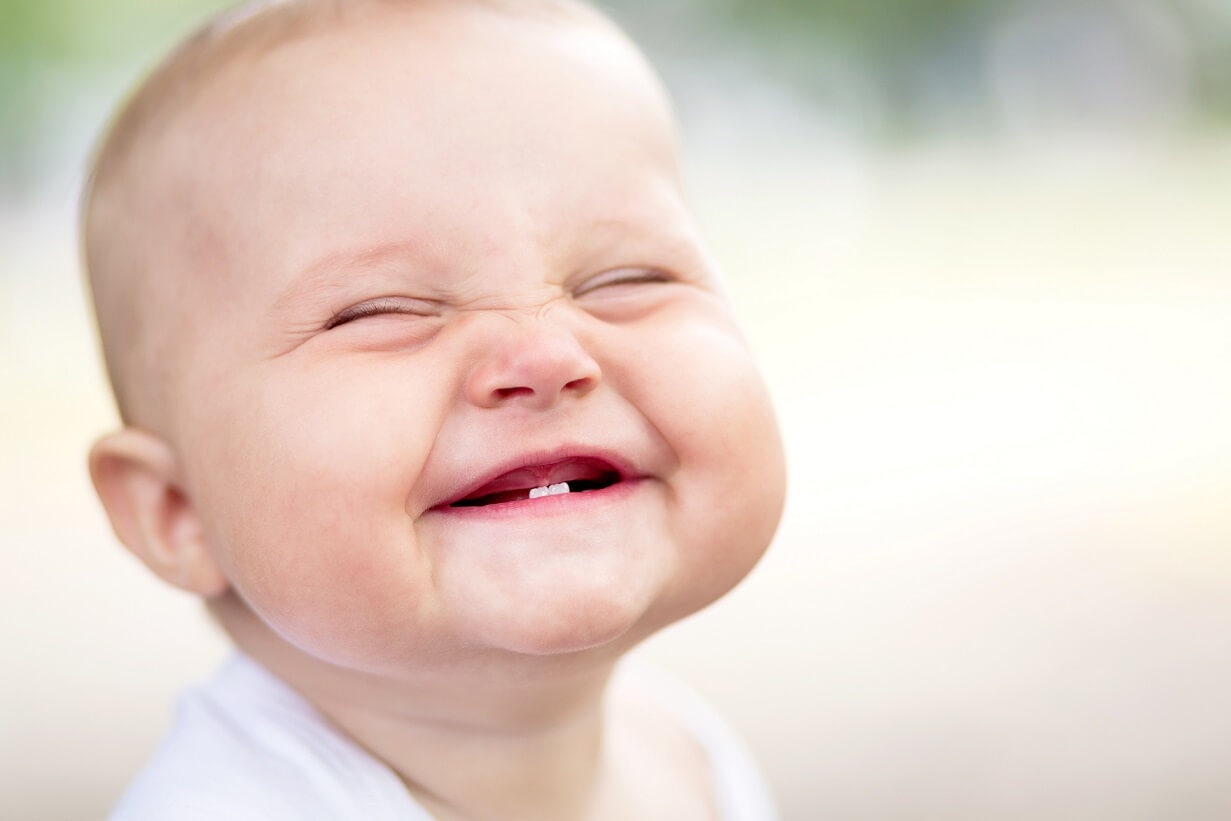The first baby teeth usually erupt around the sixth month of life. The first pair is commonly the central lower incisors, followed by the upper incisors, molars and canine teeth. By the age of 3, generally all baby teeth have erupted, fulfilling very important roles. That is why they must be cared about meticulously, in order to avoid future complications affecting even permanent teeth, and causing problems of various kinds for a lifetime.

Baby teeth
The initial role of baby teeth is to help young children with chewing solid foods, and also aid them with speech when they start learning their first words. If there are teeth already missing at a young age, the task of grinding any solid nutrients becomes increasingly hard. It can result in the child refusing any food other than liquids, malnourishment being the consequence. Missing teeth can also distort the formation of sounds, which can easily cause a lifelong speech disorder. Therefore, it is easy to see why it is a big problem if these teeth decay or have to be extracted before they fall out naturally.
Decaying of baby teeth also carries future risks for permanent teeth. If the bone tissue surrounding the teeth becomes inflamed due to caries, it can affect the germ of permanent teeth, as well. Secondly, if baby teeth have to be extracted for dental health issues, they are unable to reserve space for permanent teeth in the jawbone. That way, permanent teeth will no longer have the space to erupt, resulting in crowding, which can only be solved by orthodontia later on.
When the damage is done, and baby teeth have already started to decay, there are still solutions to stop the process. After getting rid of the decayed surface, the gap in the tooth is usually filled with glass ionomer cements, which not only prevents further caries, but also releases fluoride to strengthen the tooth to avoid further damage. If baby teeth have to be extracted, the space left behind must always be reserved by a so-called space maintainer, to rule out future crowding of erupting permanent teeth.

Prevention is Key
As in many cases, prevention is always a better choice than handling existing problems. It is very important to have the teeth of our kid checked at least once in every 6 months after the age of 3. This way even the smallest decay can be spotted in time and prevented from spreading by so-called fissure sealing. During this procedure, the dentist applies a special kind of thin filling material in the fissures, which fills out the space within. This way, fur and bacteria simply cannot get to the tooth, leaving it healthy for as long as 4 years, when accompanied by sufficient oral care.
It is vital that parents teach their children the use of toothbrushes, and have them brush their teeth at least twice a day with quality toothpastes, produced specially for their age. Besides these, caries can also be prevented by avoiding the consumption of sugary drinks and sweets. And remember, healthy permanent teeth can only be achieved by having intact baby teeth, so take good care of them.

